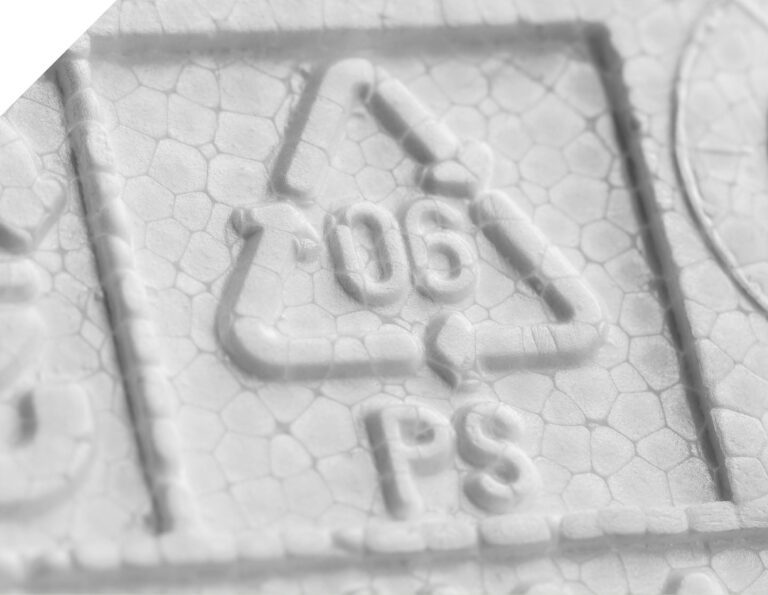Agilyx’s proprietary advanced recycling technology
Styrenyx
Our technology uses catalyst-free depolymerization to recycle polystyrene waste back into its virgin-equivalent building blocks for reuse in new, high-quality products. A third party reviewed report confirms that when using renewable energy to recycle polystyrene (PS) to styrene, Styrenyx can reduce up to 86% of carbon-equivalent emissions compared to fossil-based production.
Styrenyx, our advanced recycling technology, not only enables a circular economy for plastic, it does so with a lower carbon impact. Choosing innovative solutions and investing in the necessary infrastructure is essential for solving the plastic waste crisis and create a lower-carbon, more sustainable future.
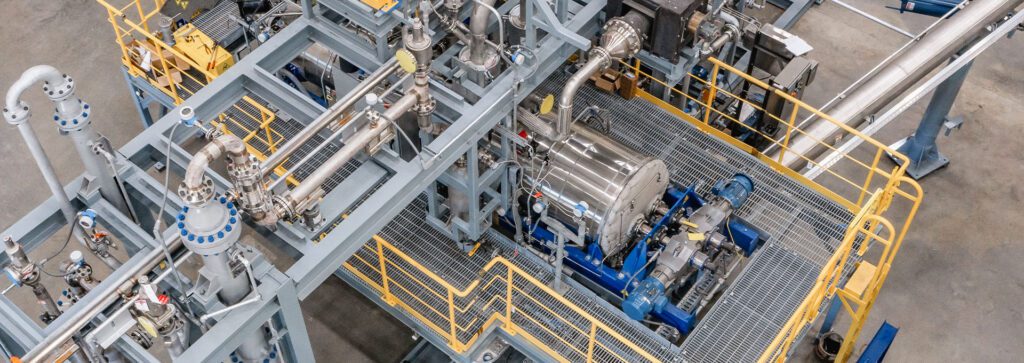
Preserving the value of plastic, sustainably
Agilyx’s advanced recycling technology tackles the global plastic waste problem by processing hard-to-recycle plastics that traditional recycling methods cannot. Styrenyx, our proprietary depolymerization process, uses controlled temperatures to break polystyrene into its original building blocks, preserving their value for continuous reuse in a circular economy. Our technology supports a sustainable future by using an electrified reactor with lower carbon impact and a renewable energy source.
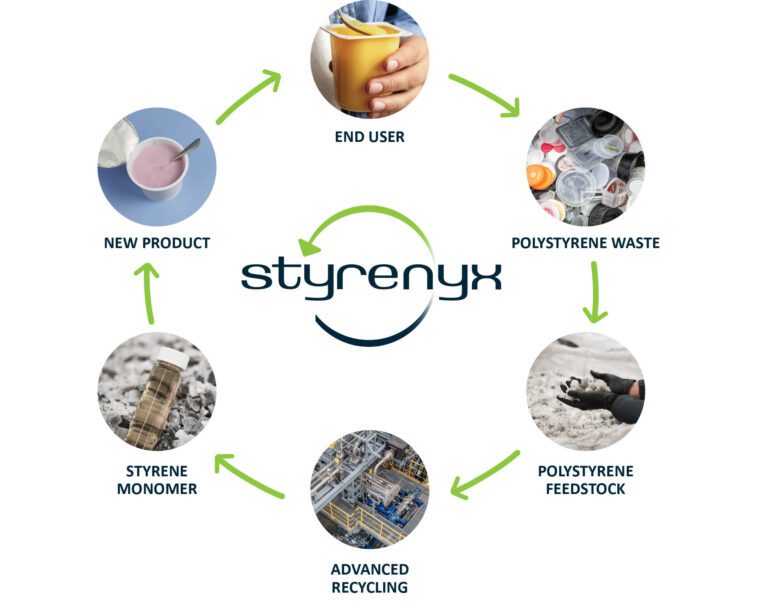
Our technology can reduce carbon equivalent emissions for styrene production by up to 86% compared to fossil-based production
Agilyx commissioned Sphera Solutions to conduct a cradle-to-gate carbon footprint assessment.

Lowers emissions by 86% when powered by renewable energy

Cuts CO₂ emissions by 46% using grid electricity

Consistent with ISO 14067:2018 standards

Critically reviewed by a third party
Built for versatility Styrenyx is used in commercial-scale technology platforms to redirect plastic waste from landfills and the environment back into use. Unlike other technologies, Styrenyx’s reactor does not use a catalyst. This means we are able to process even contaminated plastic waste, greatly increasing recyclability rates.

Lower-carbon process
Reduces carbon impact by using an electrified reactor powered by a renewable energy source

Catalyst-free system
Allows contaminated polystyrene feedstocks

Robust feedstock capability
Allows input of a broad range of polystyrene feedstocks and blends (including, waste PS, GPPS, EPS, XPS, HIPS, ABS, AS & SAN)

Flexible process
Reduces carbon impact by using an electrified reactor powered by a renewable energy source
Backed by 20+ years of technology development
With eight generations of technology development, a robust portfolio of patents and a license actively operating at a waste polystyrene recycling facility in Japan, Agilyx has established its leadership position in the advanced recycling industry. The technology is compatible with ISCC PLUS certification standards, enabling traceability and verification of recycled content to support customer and regulatory requirements.
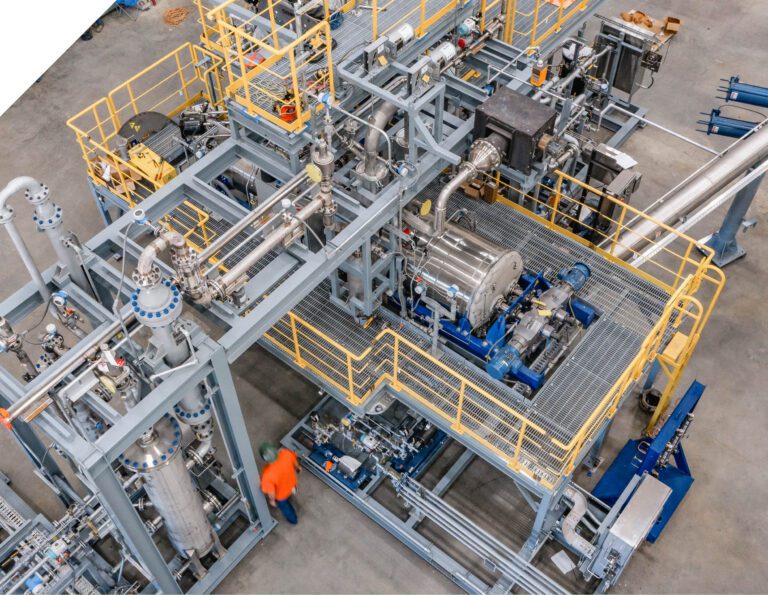
Styrenyx: Feedstock to Product
Styrenyx is designed to drive the future of sustainable packaging by enabling plastics to be recycled repeatedly, reducing reliance on fossil-based materials and significantly lowering carbon footprints.
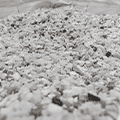
Input: Polystyrene feedstock
Densified polystyrene waste is fed into the reactors.
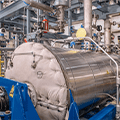
Conversion: Depolymerization
Our patented pyrolysis reactor depolymerizes, (breaks down using high, controlled temperatures) the polystyrene into its original building blocks: styrene monomers.

Output: Styrene monomer
The end-product, a styrene monomer, enables all styrene monomer end-markets to create new, virgin-equivalent, high-quality polystyrene products, reducing the need for fossil-based production.
Styrenyx is proven on a commercial scale
Styrenyx is at the heart of Toyo Styrene’s advanced recycling facility in Chiba, Japan — the largest facility dedicated to the depolymerization of polystyrene waste in the country.
This innovative facility converts polystyrene waste into a styrene monomer using Styrenyx technology. The recovered styrene monomer can be used to make high-quality polystyrene products with a significantly reduced carbon footprint compared to those made with virgin materials.
